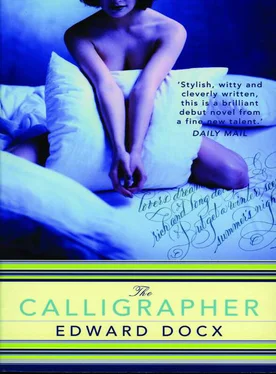Unfortunately, several centuries in the highest ranks of government, church and army had left the men in his family quite unable to imagine women, let alone talk to them. Indeed, William suspected that he was the first male child in sixteen generations not to turn out gay. As I could imagine, this was a severe blow both to him and his lineage but he had tried it with other boys at school on several occasions and there was absolutely nothing doing. The truth of the matter was that he liked girls; and that was that. And as he was now nearing twenty, he rather felt that he should be getting on with it. Could I offer any pointers?
Naturally, things have moved on a good deal since then and these days Will is regularly trumpeted by various tedious publications as one of the most eligible men in London. He is an invaluable ally and well known on the doors of all good venues – early evening, private and exclusive as well as late night, public and squalid. I regret to say, however, that his approach remains erratic and hopelessly undisciplined. Though many women find him attractive, the execution of his actual seductions is not always the most appropriate. It is as if a strain of latent homosexuality bedevils his genes – like an over-attentive waiter at a business lunch.
All else aside, William is the most effortlessly charming man that anybody who meets him has ever met. He is also genuinely kind. And though he claims to feel terribly let down by the astonishing triviality of modern life, this is merely an intellectual arras behind which he chooses to conceal a rare species of idealism. He does not believe in God or mankind but he visits churches whenever he is abroad and runs a music charity for tramps.
On the subject of William’s relationship with Nathalie … Back in March, he claimed that it was purely platonic and I have to say that I think he was telling the truth. Under light questioning, he explained that it was only in this way that he could maintain the exclusivity of their intimacy since – of the few women who shared his bed from time to time – Nathalie was the only one with whom he was not having sex. They were therefore bound together by uncompromised affection and happily unable to cheat on one another. (She, too, I understood, was at complete liberty.) This approach, he confided, was an ingenious variation on the arrangement his forefathers had shared with their various wives since they had first come to prominence (under Edward II); dynastic obligations aside, they had kept sex resolutely outside of marriage, thereby removing all serious woes, threats and resentment from their lives.
A little before midnight, the birthday evening’s rightful enchaînement having been long re-established, Lucy and I were alone at last, intimately ensconced at the corner of the largest table in La Belle Epoque, my favourite French restaurant. We were considering the last of our dessert with a certain languid desire, and feeling about as happy as two young lovers can reasonably expect to feel in a London so beleaguered by medieval licensing laws. A little drunk perhaps, a little reckless with the cross-table kissing, a little laissez-faire with the last of the Latour; but undeniably at ease with one another and, well, having a good time. The bill was paid and my friends had all left – William and Nathalie among the last to go, along with Don, another university friend, over from New York, with his wife, Cal, and Pete, Don’s fashion-photographer brother, who had arrived with a beautiful Senegalese woman called Angel.
If pressed, the casual observer would probably have informed you that he was watching a boyfriend and girlfriend quietly canoodling while they awaited a final pair of espressos. If he was any good at description, this observer might have gone on to say that the woman was around twenty-eight, five-foot six or seven, slim, with dead straight, bobbed, light-brown hair, which – he might have further noticed – she had a habit of hooking behind her ears. Had he dashed over and stolen my chair while I visited the gents’, he would also have been able to tell you that her face was very slightly freckled, principally across the bridge of her nose, that she had thin lips (but a nice smile), that her eyes were a beseeching shade of green and that she liked to sit straight in her chair, cross her legs and loosen her right shoe so she could balance it, swinging a little, on her extended big toe. He might have rounded the whole thing off with some remarks about how – even now – England can still turn out these roses every once in a while. But at this stage we would surely have to dispute his claims to being casual and tell him to fuck off.
It is more or less true to say that back then, Lucy and I were more or less a year into it – our relationship, that is. I’m not sure why – these things happen …
Actually, I am sure why: because I liked Lucy very much. That is to say, I still like Lucy very much. Which is to say I have always liked Lucy very much. Lucy is the sort of woman who makes the human race worth the running. She’s not stupid or simpering, and she only laughs when something is funny. She’s intelligent and she knows her history. Yes, she can be cautious, but she’s quick-witted (a lawyer by profession) and she will smile when she sees she has won a point. Then she’ll pass on because she’s as sensitive to other people’s embarrassment as quicksilver to the temperature of a room. She keeps lists of things to do. She remembers what people have said, but doesn’t hold it against them. She seldom talks about her family. And she has no time for magazines or horoscopes. If you were sitting with us in some newly opened London eatery, privately wishing you had an ashtray for your cigarette, you might well find that she had discreetly nudged one to a place just by your elbow. Which is how we met.
Even so, it is with regret that I must add that Lucy is a nutcase. But I didn’t know that then. That all came later.
‘Close your eyes,’ she said, putting her finger to my lips for good measure.
I did as I was told and lowered my voice. ‘You haven’t organized a –’
‘Too late. It’s tough. I’ve got you a big cake with candles and all the waiters are going to join in with “Happy Birthday to You”, so you’ll just have to sit still and act appreciative.’
I heard the rustle of a bag and the stocky chink of espresso cups.
‘OK, open your eyes.’
A young waiter with a napkin over his shoulder hovered nearby – curious. A neatly wrapped present lay on the table.
Lucy smiled, infectiously. ‘Go ahead: guess.’
I leant across and kissed her.
‘Guess.’
‘Earrings?’
‘You wish.’
‘A gold locket with a picture of Princess Diana?’
‘Oh, go on, for God’s sake … open it.’
I undid her neat wrapping and unclasped the dark velvet case: a gentleman’s watch with a leather strap, three hands and Roman numerals. I held it carefully in my palm.
‘So now you have no excuses.’ Her eyes were full of delight. ‘You can never be late again.’
I felt that tug of gladness that you get when someone you care about is happy. ‘I won’t be late again, I promise,’ I said.
‘Not ever?’
‘Not for as long as the watch keeps time.’
‘It has a twenty-five-year guarantee.’
‘Well, that’s at least twenty-five years of me being on time then.’
On the face of it ‘Confined Love’ is one of John Donne’s more transparent poems: a man railing against the confinement of fidelity. Neither birds nor beasts are faithful, says his narrator, nor do they risk reprimand or sanctions when they lie abroad. Sun, moon and stars cast their light where they like, ships are not rigged to lie in harbours, nor houses built to be locked up … The metaphors are soon backed up nose to tail, honking their horns, like off-road vehicles in a downtown jam.
Читать дальше












